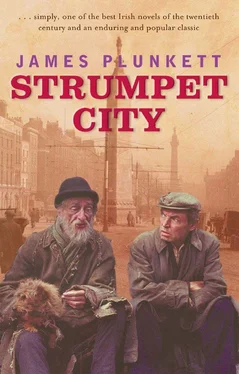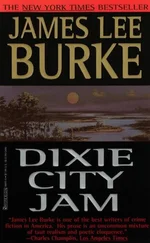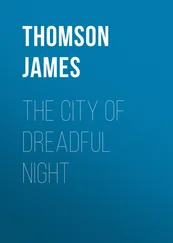‘A charitable society,’ he repeated, ‘I am more interested in your finding me another boilerman.’
The boilerman who had tended the unreliable contraption which heated the water system for the church, had been one of the winter’s victims. His body was due to arrive at the church that evening.
Father O’Connor said: ‘I have been enquiring about a deserving case.’
‘You want a charitable society,’ Father Giffley said with a snort, ‘yet you are unable to find a deserving case.’
‘The poor man is only dead two days.’
‘Throw a stone from any window in the parish of St. Brigid. You’re bound to hit a hungry wretch.’
‘He must be trustworthy.’
‘For ten shillings a week—impossible.’
‘I’ll do my best,’ Father O’Connor submitted. If his superior did his share of the duties there might be more time to attend to the matter he was complaining of. Father O’Connor resisted the temptation to say so.
‘Hanlon was a gentle poor old dodderer,’ Father Giffley brooded.
‘His chest was bad, I understand.’
‘He didn’t die of a surfeit of piety, anyway, the poor soul.’
‘His language was sometimes objectionable.’
Father Giffley was surprisingly tolerant. ‘It’s their physic against ill health,’ he said. ‘As for charitable societies—charity in this parish must remain the monopoly of the Protestants. They have the money. We haven’t.’
‘We lost a family to them last week,’ Father O’Connor said, using an argument that Father Giffley, he felt certain, could not dare to ignore. But his superior took it as a necessary part of the pattern.
‘A bowl of soup, a hot bath—and then they wash them in the Blood of the Lamb,’ he said. ‘Do you know, I’ve heard them singing in the streets a thing that goes: “Yes, we shall gather at the River”. Grown adults warbling about gathering at the river is beyond me.’
‘I think the river is figurative, representing the flow of grace . . .’
Father Giffley sat upright.
‘Do I need explanations of what is obvious and elementary?’ He left down his whiskey glass.
‘What family has apostasised?’
The word startled Father O’Connor. It fell into the room with an evil and terrible sound.
‘People named Conlan. Keever, one of my confraternity men, told me. I’ve tried to trace them but they seem to have moved into another parish.’
‘They always do,’ Father Giffley said.
‘It happens often, then . . . ?’
‘No, not often. Our parishioners keep the Faith. It is the only thing most of them have.’
‘That is why I am anxious to start some kind of relief fund.’
‘Without money?’
‘The ladies of the parish . . .’
‘There are no ladies in the parish of St. Brigid; except, of course, a few ladies of light virtue. And even they find it difficult to live.’
‘I was going to say—the ladies of the parish of Kingstown. Some of them are very interested.’
‘Have you asked them?’
‘I have described the conditions here. They seemed anxious to help.’
Father Giffley looked at the young man for some time, his eyes reflective, his cheeks veined and swollen. He hated the fair hair and pale, unlined face. He hated the humble manner and the bowed head, the zeal for good works which he was convinced was an outlet for a strange form of snobbery. Father Giffley, while his junior waited patiently for a decision, let his mind wander through the parish he had spent so many lonely years in. He hated it too, and made no effort to do otherwise. In his own way he pitied the people. He had no contempt for them. It was not their fault that they were born into poverty or that the rooms they inhabited were overcrowded. The filth they lived in was unavoidable. And this self-centred young fool wanted to scratch at the surface.
Father Giffley said:
‘Some form of relief fund? Very well. You have my permission, Father.’
He held up his glass and regarded it through half-closed eyes. There would be words of gratitude.
‘I am deeply grateful, Father.’
That was the phrase Father Giffley had anticipated. He smiled at his glass, as though it, too, had guessed aright.
‘When will you start?’
‘At the earliest moment . . . with your permission?’
There it was again. Deeply grateful. With your permission.
‘Do you think, Father, that the widow who gave her mite may have had it from the ladies of Kingstown?’
Father O’Connor flushed. He did not know what his superior meant, except that he intended to be insulting.
‘I don’t know what you mean, Father.’
He was embarrassed and unhappy.
‘Your charitable efforts will be a cover for hypocrisy, because you know you can do nothing for these people by throwing them a blanket or giving them a hot meal.’
‘A family left our church for that.’
‘You see. You are worried exclusively about souls, Father. You must worry now and then about human beings. Ask the ladies of Kingstown and their husbands to give back what they have taken.’
Father Giffley began to laugh. It was not the sort of laughter that was meant to be shared. Father O’Connor remained silent. The fact that one of his cloth should be a drunkard distressed him unbearably. He looked pointedly at the clock.
‘I have the funeral to receive,’ he said. He rose.
Father Giffley fixed his eyes on the young, hurt, disapproving face.
‘Let me tell you something before you leave,’ he said, in a kindlier tone. ‘It may help you—it may not.’ Father O’Connor sat down again.
‘You have seen a Mrs. Bartley from time to time?’
Father O’Connor had. Before first mass, or very late at night, he had seen her on her knees, scrubbing the floors, scraping candle-grease from the sanctuary carpet with the broken blade of a knife. She was one of a number of casual cleaners.
‘Mrs. Bartley had a child who was very ill once. He was on the point of death,’ Father Giffley continued. ‘I sat in her room throughout the whole of a winter’s night and watched the child. I don’t know why I did it. I prayed some of the time. Some of the time I wiped the sweat from the child’s forehead. The woman sat with me and so did the father. She made tea for me throughout the night, but they spoke to me hardly at all. They had never heard before of a priest sitting all night with a child. When I left in the morning the child had not died. He was sleeping easily and by the next day it was obvious that he was going to live.’
Father Giffley sighed and added:
‘For some months I was highly edified by my priestly conduct. Mrs. Bartley believed there had been a miracle. In fact she is probably the only parishioner who, whenever she salutes this poor, drunken oddity, feels she is in the presence of a saint. You see—she thinks I have a harmless fondness for peppermints.’
‘Father . . . please.’
‘And, oddly enough, I should not like her to learn the truth.’
‘You feel there was a miracle?’
‘The child? No. But in me there was. For one isolated night I had found the true disposition, so that even if the child had died they would still have drawn comfort and peace from me.’
‘It was a privileged experience.’
‘Your ladies of Kingstown will never teach you how to find it. They’ll do worse. They’ll draw you away, into self-satisfied almsgiving. But if you can find it for yourself you will be the comforter of the destitute, even when your pocket and your belly are as empty as theirs.’
Father O’Connor hardly knew what to say. He looked at the purple-veined face, the bulging eyes, the strong nose with the sprouting hairs marking each nostril. This heavy-breathing boor was trying to show him the road to sanctity. At last he said:
Читать дальше












